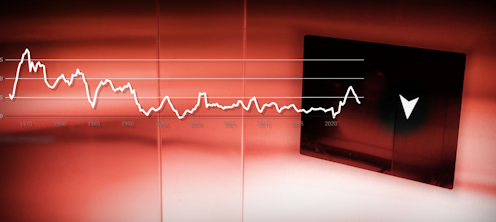'Big Brother' surveillance in elite sport is pushing a culture with a machine mentality
 What it takes to get to the top. Rugby by Shutterstock
What it takes to get to the top. Rugby by ShutterstockWith a “win-at-all-costs” culture firmly embedded in elite sport, coaches are increasingly turning to technology in attempts to zoom in on the slightest deficiencies perceived to be thwarting the performance of their sports teams. Accelerating to greatness and titles, capturing the hearts of supporters and growing a fan-base to extol the commercial interests of owners and sponsors can all inevitably be traced back through to the successful conquests of individual players or teams.
The master controller of all these ambitions, the coach, is invariably the significant agent in this endeavour, but often also positioned in the line of fire, ready to bear the brunt of any poor team performances. David Moyes, former manager of Manchester United, presided over the team as it fell to seventh place in the Premier League over a ten-month period, the first time in the competition’s history that the club had occupied such a lowly position. Moyes was dismissed less than a year into his six-year contract.
In response, coaches are readily investing their efforts in the wisdom of “Big Brother” surveillance. Technological advancements now allow the use of global position systems (GPS), laptops, stadium/pitch-side camcorders, heart-rate monitors, iPhones/iPads, central servers and instant digital feedback to provide a multitude of data implemented to monitor and evaluate player performance.
These enforced technical/administrative routines have readily been appropriated within elite sport and perceived as the “gold standard” among the coaching fraternity.
Orwellian sport
These data management strategies are often deployed without question and are indeed extremely coercive in ensuring that players quickly fall into line with institutional objectives. The different types of data capture and the watchful eye of the camera looming over the daily lives of elite players are largely taken for granted. Life is no longer just about training and the occasional drug test. This new world conjures up images of a dystopian environment with the mentality of the machine.
While many elite sporting organisations advocate the importance of performance analysis and the use of surveillance technologies in elite sport, the players themselves are often forgotten voices in this drive for the most efficient way to win – it’s just part of the game.
Data sets and the tracking of performance often provide a useful basis on which to explore individual and team deficiencies, yet the harmful consequences of constant monitoring are rarely explored in elite sport. Players are still people after all.
There is a growing desire to capture the most intricate details of sporting performance – and the adoption of technology and data to do this has been both unremitting and uncritical – so much so that it has consumed both the playing and private lives of elite athletes and sterilised relationships with coaching staff.
Instead of a supportive and holistic environment in sport, the implementation of technology for performance analysis can instead create a climate of fear where failure to meet personal indicators results in public embarrassment for players who are scorned or “rinsed” by coaching staff. The introduction of key performance indicators and the capture of key data sets within many elite clubs has become an important ally in allowing coaches and management to adopt command and control strategies that formalise a regime of power.
Psychological impact
Take rugby union, for example: when considering both the unpredictability of human performance and the fluctuations and unpredictability of the game, any innate wizardry and natural empathy in the sport is in danger of being suppressed. Instead players are considered functionaries who are then required to negotiate an identity as a digital profile or data double. Any escape routes from institutional pressures is now essentially limited by surveillance.
The extent to which players become risk averse in order to follow strict coaching instructions could also threaten to fundamentally undermine aspects of the game. Such processes of individualisation can dampen team morale, incite a culture of anxiety amongst athletes and, for fans, could create less interesting matches with teams opting to play it safe.
Coaches often voice a humanistic approach to their practice; however, with an increased reliance on surveillance and data capture, it may be that we are visibly witnessing the caricature of the elite coach morphing into the modern-day technocrat engineer. And while it can appear to drive performance, at such an unrelenting pace it may not be sustainable in the long run.
The authors do not work for, consult to, own shares in or receive funding from any company or organisation that would benefit from this article. They also have no relevant affiliations.













